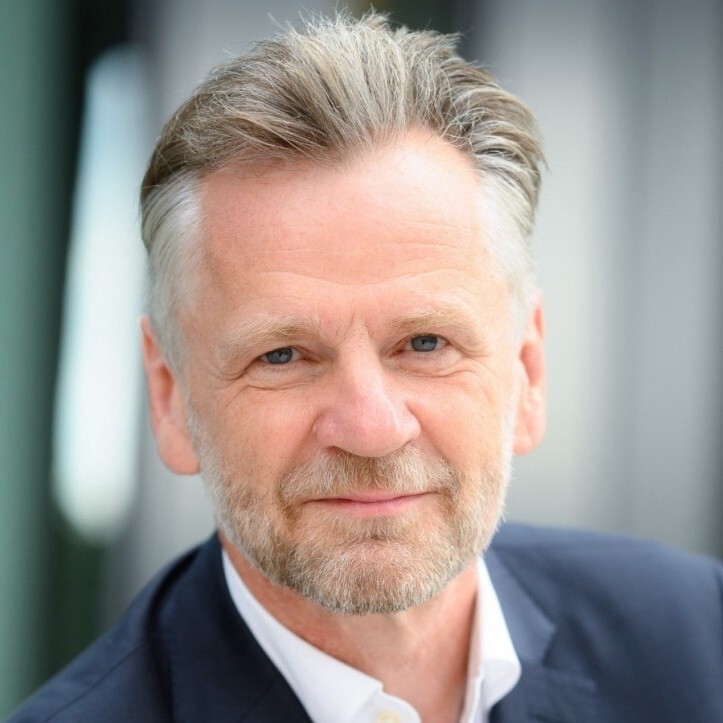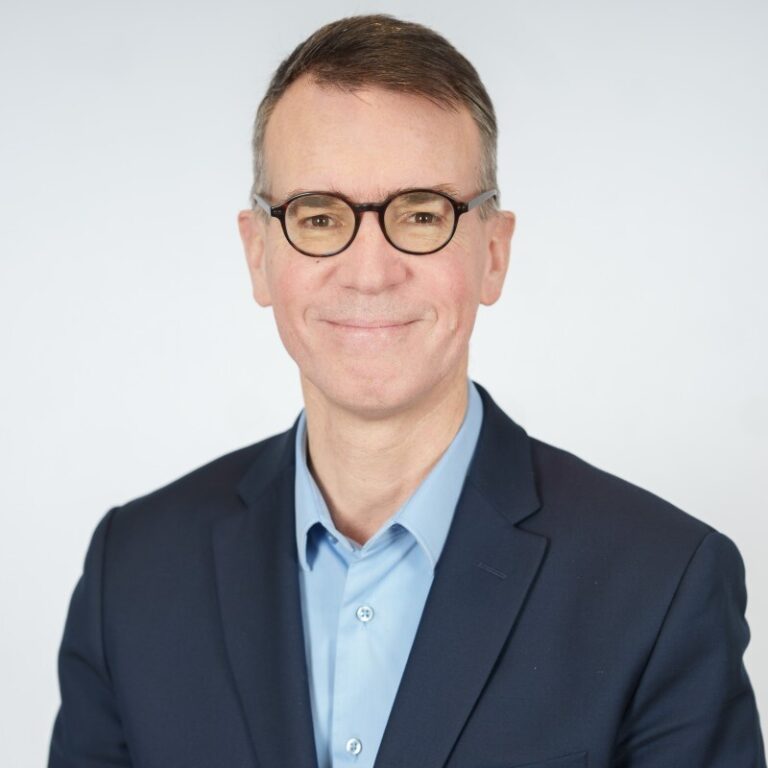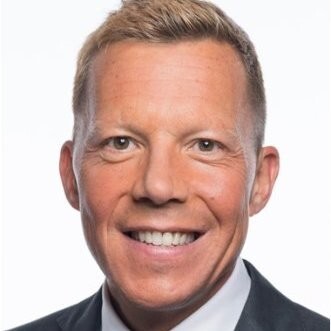UNLEASH World Expeditions 2024: Top priorities from the HR Leader A-list
L’Oréal, The Orange Group, Sodexo, Clariane, and Equans opened their HQs in Paris to give a select number of HR leaders behind-the-scenes insights into how they are shaping the future of work.
UNLEASH World 2024 | Keynote Takeaways
UNLEASH Expedition has launched for the first time at UNLEASH World 2024 as an exclusive HR Leader experience.
A small group of UNLEASH World 2024 attendees had the unique experience of getting a first-hand, exclusive look into the HQ of one of five global businesses, headquartered in Paris, France.
Discover that happened behind the scenes at L'Oréal, The Orange Group, Sodexo, Clariane, and Equans.
To kick UNLEASH World 2024 off to a flying start, this year, we launched UNLEASH Expeditions, where we gave a select group of people an exclusive look into the headquarters of five prestigious businesses the day before the main event.
Over the last decade, we’ve carefully built our ‘Who’s Who’ in HR network, bringing together top HR leaders, innovators, analysts, entrepreneurs, and industry investors.
Each of these individuals and organizations plays a pivotal role in shaping the future of HR, and through UNLEASH Expeditions, we gave a highly-distinguished group of individuals the chance to tap into their knowledge, perspectives, and vision.
After each expedition, the attendees and HR leaders were treated to a luxurious French restaurant close, where they continued the conversation with a three-course meal and drinks of their choice.
If you were unable to secure a slot at one of the expeditions, UNLEASH’s editorial team shares the inside scoop of what happened in the headquarters of L’Oréal, The Orange Group, Sodexo, Clariane, and Equans.
L’Oréal
“Being in HR is a privilege, and it is our pleasure to welcome you here to L’Oréal Headquarters.”

Credit: Jean Claude Le-Grand
7 members of the €41.18bn beauty giant’s senior HR Team welcomed a select group of HR leaders from around the world to an exclusive tour of the world renowned brand’s global HQ.
On hand was its CHRO Jean Claude Le-Grand, one of UNLEASH World’s Main Stage speakers.
“L’Oréal wants to be sure you can develop people. This is part of our interview process for this department,” shared Galina Kuzina, Global People Development and Learning Director for HR.
“We are proud of our work here, and we are here today to tell you what is making HR in L’Oréal so special because we feel quite proud of it.
What defines us is people – because we want a culture of innovation not of products.”
Attendees were then taken on a tour which visited the ‘The Decision Room’, highlighting the benefits and perks for the workforce that the HR team had deemed necessary for its employees.
One CEO delegate asked Le Grand, how to justify large scale, and expensive, HR tech investments to the board.
Le Grand was candid, advising his peers not to shy away from having that level of critical thinking and interrogation within your own team.
“Certainly a key question we should all be asking is – where is the ROI? Where are the synergies or savings if we do invest in HR Technology.”
On inspiring teams, delegates were also privy to the strategic thinking behind several of L’Oréal’s flagship initiatives, such as Share and Care, and L’Oréal for Youth.
The evening then culminated in an HR Leader dinner, where the leaders shared what their top takeaways were, and their key priorities for the year ahead.
These included, asking vendors directly for more depth on the ROI of AI-native solutions; and looking for L&D solutions that address “the world of disruption we all live in, directly”, and don’t shy away from it, while also not fear mongering.
In fact, one CPO said this meant shifting the conversation around GenAI from “replacing jobs” to “enhancing creativity and rewarding work”.
Another priority for several of the HR Leaders was the hunt for solutions or strategies that will tangibly increase productivity. A CPO of a pan-European corporation said he was exploring the idea that “a culture shift” at his organization whereby workers felt closer to the organization may help. Elaborating, he added that he was encouraging leaders in the business to be more aware of employee concerns: Ranging from the cost-of-living crisis, childcare costs to housing inequality.
It’s increasingly obvious that previous attempts at culture shift have suffered from the perception among workers that leaders aren’t close to their real lives.” He added.
The Orange Group

Credit: Vincent Lecerf
Telecommunications giant Orange trains tens of thousands of employees each year to ensure they stay ahead of competition, while equipping employees with skills to face technological advancements and leadership challenges.
Through its expedition, Orange shares how it is shaping the future by focusing on inclusion and innovation. The company invests significantly in skill development, unlocking human potential both within its organization and beyond, ensuring its competitive edge in the market.

Credit: Naïma Aubonnet
Taking to the stage, Vincent Lecerf, Group CPO of Orange Group and Naïma Aubonnet, Group Chief Diversity, Equity and Inclusion, Orange Group highlight the need for the right resources, in the right place at the right team – if they want to lead to the future.
After speaking through the session, the attendees opened up to discuss the greatest challenges in their sector. Reskilling is top of mind, and while people are excited, they are also cautious.
Other key conversations centered around mentoring being a key part of internal mobility, incoming legislation on pay transparency and CSDR, and focus on which jobs are declining, and which are growing, when deciding who to upskill and reskill.
AI is not just about the tech, it is about humans,” one attendee mentions. “Without people, Gen AI is useless.
One of the many challenges to overcome with AI is that often HR and managers are not the first adopters, so they are more cautious and don’t necessarily anticipate that others will follow suit.
What’s more, the group addresses that more skills support is needed, and although training is very important, self-training is not enough. In fact, one of the most important skills is “learning to learn”, and how to prompt AI.
Sodexo
Offering an exclusive insight to its HR Strategy and holistic approach to employee experience, Sodexo shares its employee life cycle goal to “Belong, Act and Thrive” as a people centric company.

Credit: Annick de Vanssay
Annick de Vanssay, CHRO of Sodexo, took to the floor to discuss Sodexo’s Employee Value Proposition (EVP), and highlighting its importance in post-COVID times, while emphasizing inclusion and human connection.
There is a need for clear and simple words to communicate the EVP effectively at scale,” she says. “The narrative around belonging emphasizes treating employees fairly, respectfully, and valuing their ideas and opinions.”
However, there is also a need for continuous improvement and responding to employee feedback to build a culture of belonging and inclusion. One way this can be done is through recognizing the importance of data and technology in measuring progress and making informed decisions.
Finally, de Vanssay addresses DEIB at Sodexo, emphasizing the importance of creating a globally integrated approach to servicing employee needs and developing stronger relationships with partners and suppliers.
As the conversation opened up to the attendees, a few hot topics were top of mind, including the interest in how to accurately measure and track EVP, the necessity of a singular and defined company culture, and the desire to find new methods of employee engagement, and subsequent measurement, effectively.
The attendees also debate the role of culture and employer branding across locations in different geographies, as well as the importance of creating a unified statement that captures the company’s vision, strategy, and EVP.
Clariane
Each year, Clariane’s 60,000 professionals provide services to 900,000 patients and residents in three main areas of activity: care homes, healthcare facilities and services, and alternative living solutions.

Credit: Rémi Boyer
Leading the session, Rémi Boyer, Deputy CEO Clariane Group & CEO Germany, discussed the talent shortages in the healthcare sector, while outlining Clariane’s HR strategy that ensures it supports its professionals to make a difference in their daily work.
For example, Boyer shares that 1.2 million recruitments will be needed across Western Europe for nurses and caregivers in 2025.
Boyer also shares that high turnover and absenteeism is high in the sector, and therefore one of the major challenges for Clariane.
Staff shortages are a major risk,” Boyer says, “and the quality of care depends on the availability and stability of qualified, competent and engaged staff, who exercise their daily mission in line with the Groups standards, values and cultures.”
After closing the session, the attendees open the floor to discuss not only Clariane’s biggest HR challenges, but their own, too.
High on the discussion list, was the gender divide in the various industries present. “We’re trying to attract females into the business by offering a more flexible type of work package, which doesn’t necessarily translate with every business,” one participant says.
Another comments: “Younger generations are asking for much more flexible time than older generations, especially from females. It’s a very difficult topic to address.”
Finally, the group engaged in a scenario game, to not only understand the pressures the healthcare industry is facing, but to also debate with one another the many – often conflicting – solutions.
Equans Paris
Operating in the technical services industry, Equans Paris faces significant challenges in finding talent due to the sector’s specialized skill requirements.

Credit: Olivier Herout
Olivier Herout, Executive Vice President, Human Resources and Health & Safety; Claire Schnoering, Group HR Development & DEI Director; and Damien de La Masseliere, Group C&B HRIS & Data Analytics Director discuss these talent shortage, and how they’re driven by rapid technological advancements, leading to a skills gap.

Credit: Damien de La Masseliere
Additionally, the industry’s highly competitive nature, along with the demand for multidisciplinary expertise, makes it difficult to attract and retain skilled professionals, particularly as tech companies often offer more attractive compensation and career opportunities.
The race for good talent is hard due to a competitive global market, evolving skill requirements, and changing employee expectations,” one attendee inputs.
“Companies are vying for top candidates with specialized knowledge in emerging fields like AI, sustainability, and digital transformation. As industries rapidly evolve, many workers lack the necessary skills, creating a talent gap.”
From this, the discussion opens up to explore how job seekers now prioritize work-life balance, remote options, and company culture, making traditional incentives like high salaries less effective.
“The shortage of highly-qualified candidates, coupled with increasing employee demands and mobility, makes attracting, retaining, and developing top talent more challenging than ever before,” they add.
These were just some of the conversations that flowed at the UNLEASH Expedition 2024.
Will you join us in 2025?
Sign up to the UNLEASH Newsletter
Get the Editor’s picks of the week delivered straight to your inbox!

Senior Journalist
Lucy Buchholz is an experienced business reporter, she can be reached at lucy.buchholz@unleash.ai.
